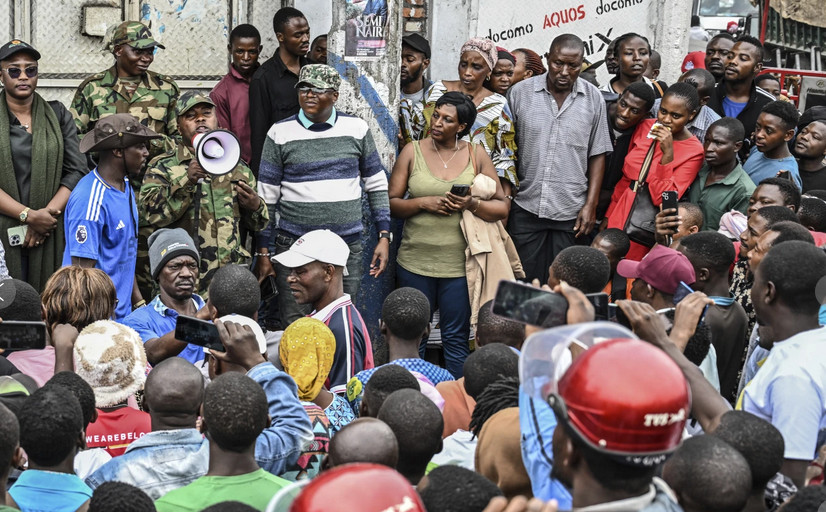Resolving the Congo-M23 Conflict
The Democratic Republic of Congo (DRC) has been plagued by decades of conflict. One of the most persistent threats coming from the M23 rebel group. As the violence continues to destabilize the region, it becomes increasingly clear that traditional military solutions have failed to bring about lasting peace. This article explores a pragmatic approach to resolving the conflict. This emphasizes the need for political dialogue, the expulsion of foreign forces, and the assertion of national sovereignty by the Congolese government.
Understanding the M23 Movement
The March 23 Movement, commonly known as M23, emerged in 2012 as a rebel group primarily composed of former members of the National Congress for the Defense of the People (CNDP). The group’s name references a failed peace agreement signed on March 23, 2009 between the Congolese government and CNDP. The rebels claim the agreement was never fully implemented. M23 quickly gained notoriety for its rapid military advances, including the brief capture of Goma, a major city in eastern Congo.
M23’s grievances are rooted in issues of political representation, ethnic tensions, and the marginalization of certain communities, particularly the Tutsi population in eastern Congo. The group has also been accused of receiving support from neighboring countries, further complicating the conflict and drawing in regional powers.
The Role of Foreign Forces
Foreign involvement has been a significant factor in the Congo-M23 conflict. Allegations of support for M23 from Rwanda and Uganda have fueled tensions and undermined efforts to reach a peaceful resolution. Rwanda is often accused of backing M23 due to ethnic ties with the Tutsi population and strategic interests in eastern Congo’s mineral resources. Uganda has similarly been implicated, although its motivations are less clear, possibly tied to regional influence and security concerns.
On the other hand, the Congolese government has received support from various international and regional forces. The United Nations Organization Stabilization Mission in the Democratic Republic of the Congo (MONUSCO) has deployed peacekeepers to assist the government in combating rebel groups, including M23. Additionally, the Southern African Development Community (SADC) has expressed support for Congo’s sovereignty and stability, while Angola has also played a mediating role in regional peace efforts.
This foreign entanglement has created a complex web of interests that hinder genuine peace efforts. For any resolution to be effective, the Congolese government must take decisive action to expel all foreign forces involved in the conflict. By doing so, President Félix Tshisekedi can assert his authority and demonstrate that the DRC is capable of managing its internal affairs without external interference.

Residents Listen to the M23 Rebels in Goma, The Democratic Republic of Congo. Fri 31 Jan 2025 – AP News.
A Call for Truce and Dialogue
The first step towards resolving the Congo-M23 conflict is for President Tshisekedi to call for an immediate truce. A ceasefire would create a conducive environment for dialogue and reduce the suffering of civilians caught in the crossfire. This gesture of goodwill would signal the government’s commitment to finding a peaceful solution and encourage M23 to come to the negotiating table.
Following the truce, the Congolese government should engage directly with M23 leadership. Open and honest discussions about the group’s demands and grievances are essential for building trust and finding common ground. This dialogue should be facilitated by neutral mediators to ensure fairness and transparency.
Addressing M23’s Demands
To achieve lasting peace, the Congolese government must be willing to address the legitimate concerns of M23. This includes ensuring political representation for marginalized communities, addressing issues of ethnic discrimination and promoting inclusive governance. By tackling these root causes, the government can undermine the rebels’ support base and foster national unity.
However, it is equally important to hold M23 accountable for any human rights violations and ensure that justice is served for victims of the conflict. A balanced approach that combines reconciliation with accountability will help prevent future uprisings and promote long-term stability.
The Importance of Regional Cooperation
Expelling foreign forces is crucial. But, also regional cooperation remains essential for sustaining peace. The DRC should work closely with neighboring countries to address cross-border issues, such as the flow of arms and the movement of rebel groups. Strengthening diplomatic ties and fostering regional dialogue can help build a united front against violence and promote collective security.
Additionally, international actors such as the African Union (AU) and the United Nations should continue to support peace initiatives, ensuring that all parties adhere to agreements and respect Congo’s sovereignty.
Conclusion
The Congo-M23 conflict is a complex and multifaceted issue that requires a comprehensive approach to resolution. By calling for a truce, expelling foreign forces, and engaging in meaningful dialogue with M23 leadership, President Tshisekedi can pave the way for lasting peace in the DRC. Addressing the root causes of the conflict and fostering regional cooperation will further strengthen these efforts, ensuring a brighter and more stable future for the Congolese people.